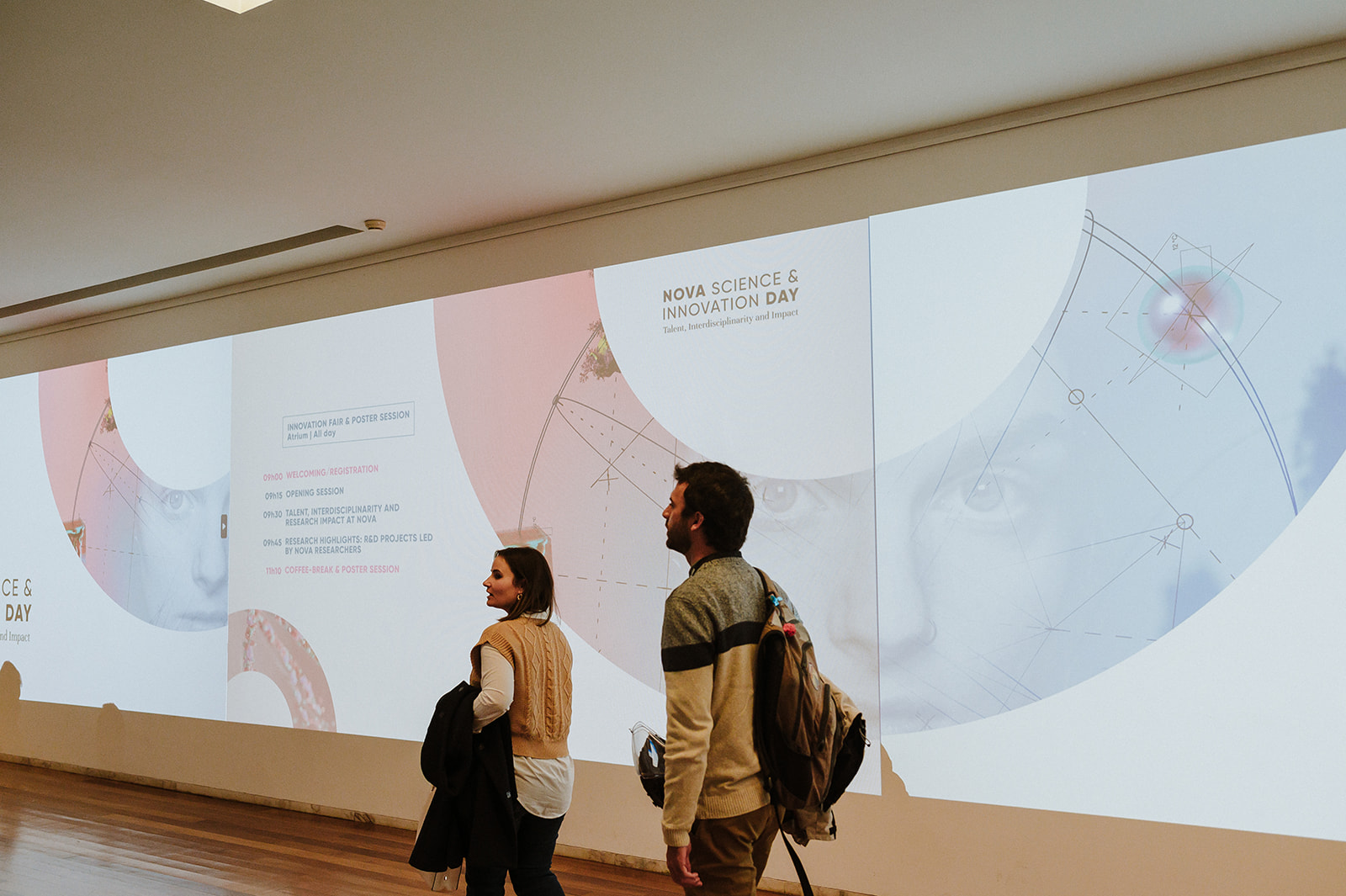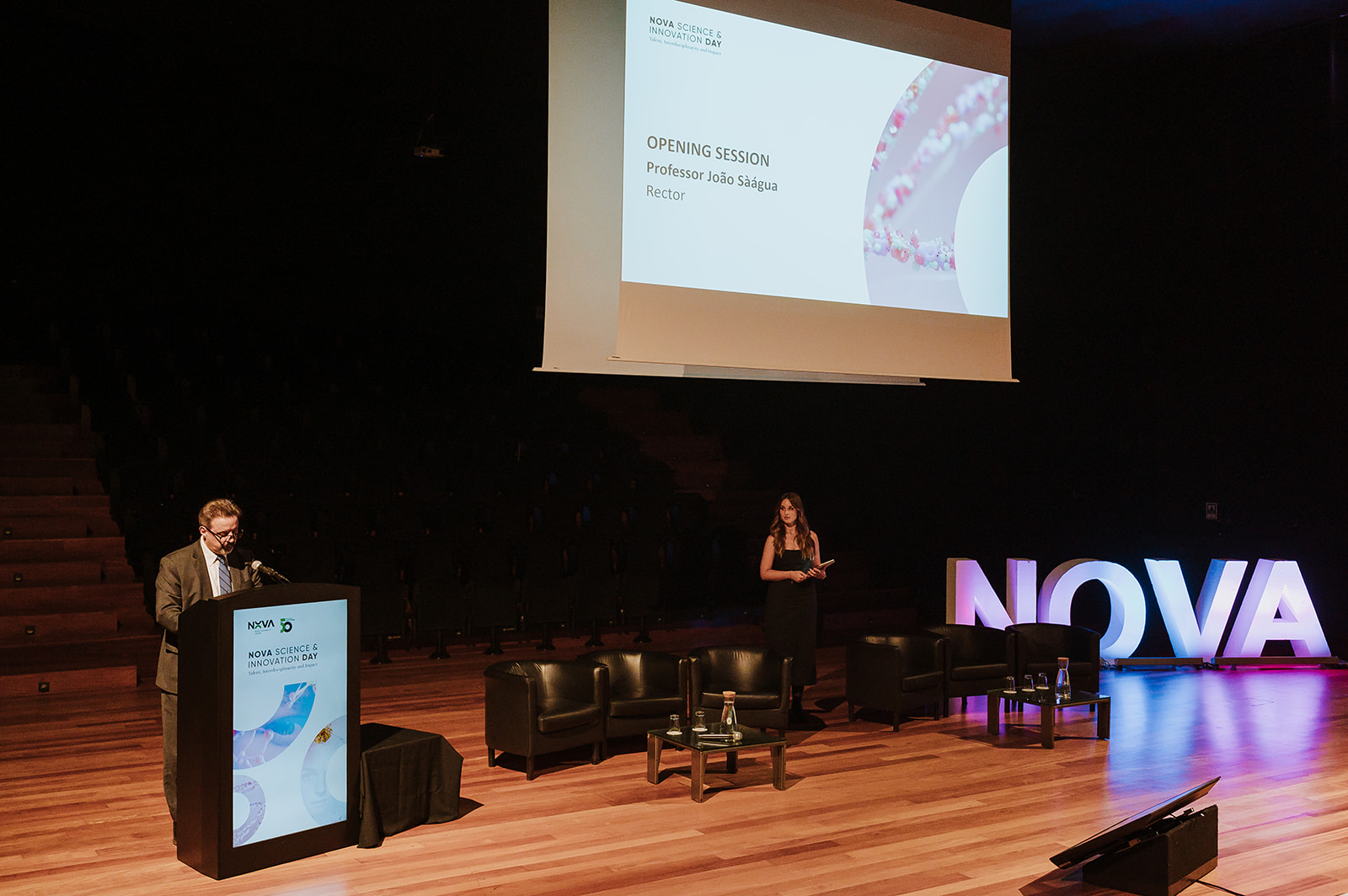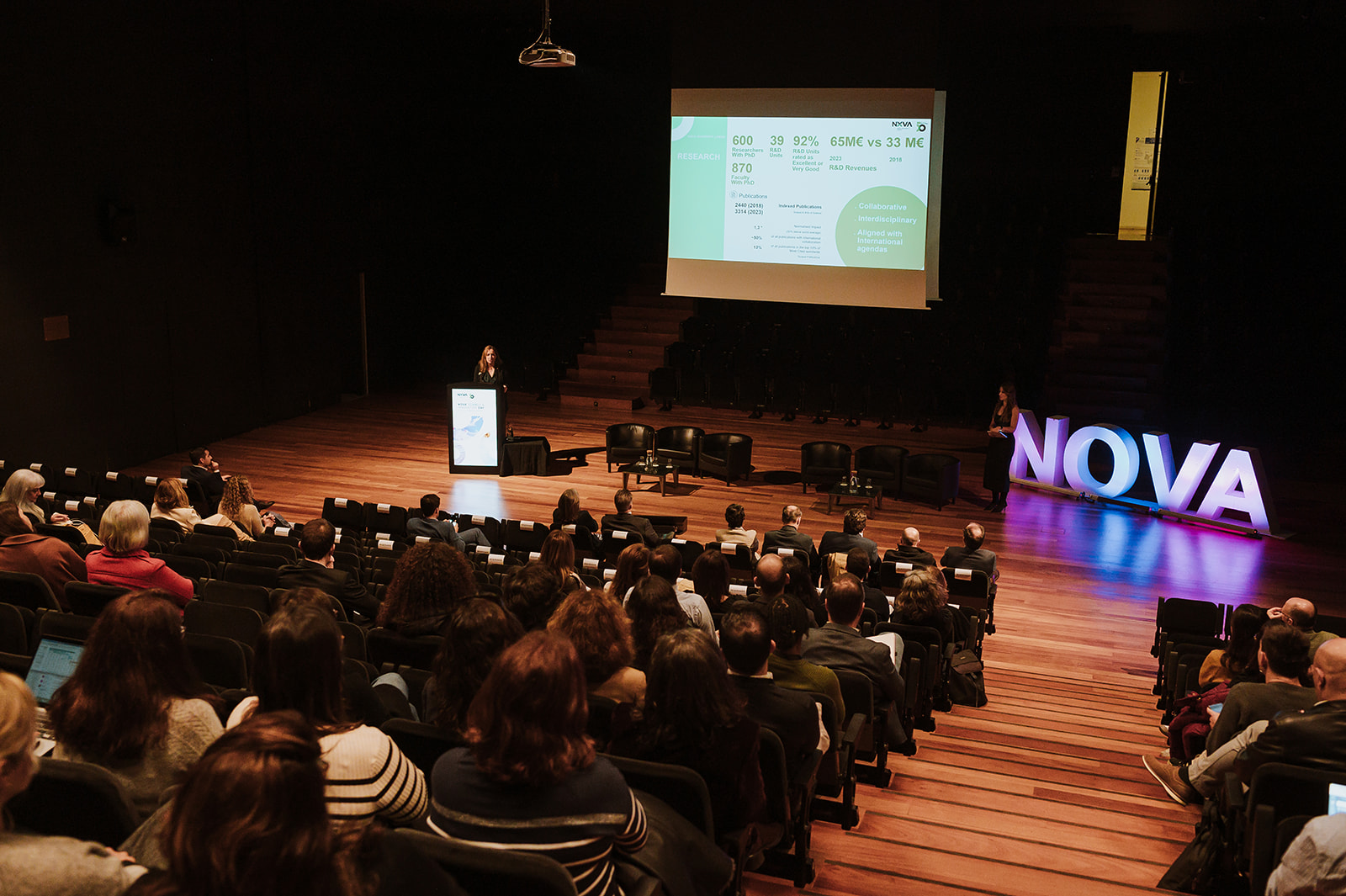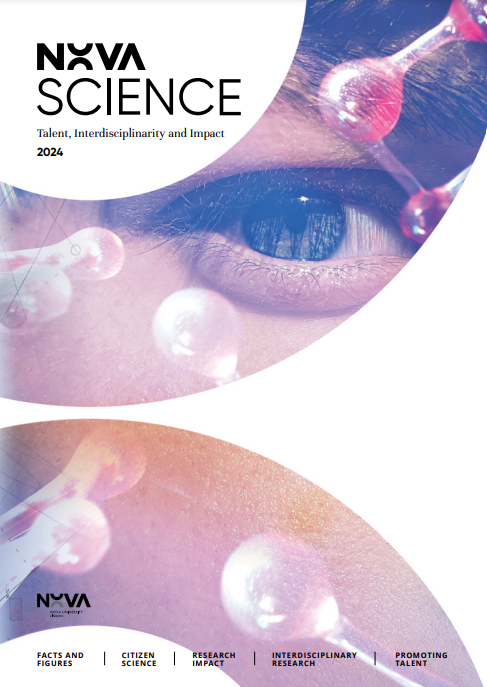 05 December 2024
05 December 2024
NOVA Science & Innovation Day 2024: Celebrating the Talent and Impact of University Research and Innovation
At the entrance of the Rectorate, the Formula Student – a project we explored in detail this summer – greeted visitors as they arrived. In the atrium, the innovation fair showcased the most promising spin-offs, CoLABs and projects from across the NOVA innovation ecosystem. Meanwhile, in the auditorium, the best of the University’s research and innovation efforts took centre stage on Tuesday, December 3rd. The event opened with Rector João Sàágua presenting a highly positive overview of the University’s achievements.
“Our scientific output has consistently grown over the past seven years,” he began, highlighting “21 ERC grants awarded since 2018, including two Synergy grants, contributing to a cumulative total of €47 million in ERC funding for NOVA researchers. Over this period, R&D revenues have also doubled.” He further noted a near 30% increase in active patents, 70% of which are protected internationally, and the university’s involvement in 20 projects funded under Component 5 – Business Capitalisation and Innovation of the Recovery and Resilience Plan (PRR).

“All this contributes,” he emphasised, “to the establishment of a vibrant scientific community, enriched by important initiatives in entrepreneurship and support for doctoral students, such as the NOVA Doctoral School, already considered one of the best initiatives within the university.”
The Rector also detailed the creation of a strategic research council and a value-creation council, with representation from all academic units, fostering a shared agenda centred on sustainability in its many dimensions. In short: “What we see is the burgeoning of a genuine intellectual culture at NOVA, connecting academia with industry and public institutions to ensure that the knowledge we generate has a tangible impact on society.”
Vice-Rector Isabel Rocha further underscored the growing ecosystem of talent, interdisciplinarity, and impact at NOVA. “The resources we’ve secured reflect the excellence of our research and the talent of our researchers,” she noted. Another major focus has been on open-access science: “NOVA boasts some of the best indicators in this area, as recognised by the Leiden Ranking,” she added.

“This also serves as a way to recognise the importance of communicating the value of research and innovation investments to society,” Rocha stressed. She highlighted NOVA’s “remarkable progress in entrepreneurship,” exemplified by spin-offs like CellmAbs, a record-breaking technology transfer agreement in biotechnology and life sciences with a Portuguese company. NOVA’s entrepreneurial reputation has extended beyond national borders, earning recognition as Europe’s most entrepreneurial university – a testament to the effort made to attract and retain talent.
After the institutional speeches, the event delved into specific research highlights from the past year.
Arturo Zoffmann Rodriguez from NOVA FCSH kicked off the presentations, discussing his ERC-funded project on the decline of democracies in Europe. Next, Inês Paninho from NOVA FCT demonstrated the current potential of hydrogen as a key energy vector. Mariana Pinho from ITQB NOVA shared updates on her groundbreaking research on antimicrobial resistance, supported by three consecutive ERC grants.
Miguel de Castro Neto from NOVA IMS explored research aimed at fostering sustainable urban living, while Susana Peralta from Nova SBE presented findings from her study, Inequality, Individual Behaviour, and Public Policies: Evidence from Fiscal Administrative Data. Silvia Conde from NOVA Medical School and Susana Viegas from ENSP NOVA discussed topics ranging from childhood obesity to the environmental stressors linked to immune-mediated diseases. Tiago Correia from IHMT NOVA concluded this segment with Vax-Action: Tackling Vaccine Hesitancy in Europe, another EU-funded project.
We also learned more about the purpose and results of NIRC – NOVA Interdisciplinary Research Community, which aims to find more sustainable energy systems, with the presentation of the Biorcicle projects, led by Ana Luísa Fernando of NOVA FCT and Ricardo Louro of ITQB NOVA, and Encompas, by Ian Scott of NOVA IMS and António Vicente of NOVA FCT.
The session included the announcement of Ignition Grants – interdisciplinary research scholarships funded in partnership with Santander Foundation, open for applications until January 15, 2025.
The morning concluded with the unveiling of the six winners of the Impact Narratives challenge, selected from 25 submissions across eight academic units. The details of these projects are featured in the 2024 edition of the NOVA Science magazine, also available online here. 
In the afternoon, the spotlight turned to citizen science initiatives under the Ciência+Cidadã programme. Seven projects, involving 25 researchers and contributions from around 300 participants, were showcased. Notable examples included Oeiras Experimenta, a living lab partnership between ITQB NOVA and the Municipality of Oeiras; Mosquito Web, a mosquito monitoring project launched in 2017; and PAFSE, which addresses public health challenges through science education.
The event also featured presentations of innovative projects, such as DxHub (ITQB NOVA), Jump into Space (Uninova), and a La Caixa Impulse initiative (ITQB and NOVA FCT). Spin-offs like Levacells, Glooma, and The Use Concept also shared their stories.
The final session explored the responsible use of Artificial Intelligence, featuring Daniela Melandri from the European Commission’s AI Directorate live from Brussels. “AI is a fantastic support tool,” Melandri emphasised, “provided it is used responsibly and with awareness of its risks and limitations.” A subsequent roundtable, moderated by Steffen Hoernig (Nova SBE), echoed this sentiment, highlighting the importance of ethical and critical approaches to AI in science and innovation.

